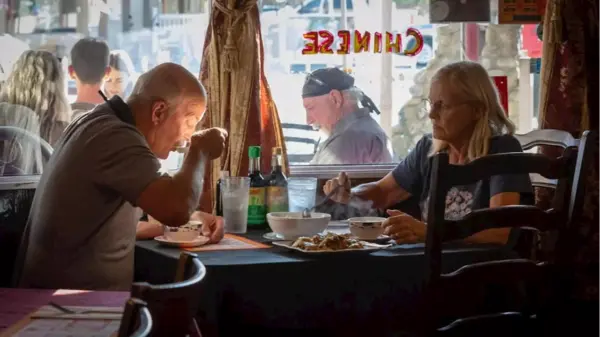URGENT UPDATE: A heated argument erupted during a casual card game in Michigan after a sister-in-law made controversial remarks regarding gender roles, igniting a fierce debate about anti-male sentiment. The incident occurred on a Friday night, with tensions flaring when the host referred to himself as the “man of the house.”
The sister-in-law interrupted, declaring it is 2025 and challenging his self-identification. The host defended his perspective, stating, “I most certainly am the man of my house, just as my wife is the woman of the house.” What followed was a barrage of accusations, with the sister-in-law reportedly unleashing what the host described as “anti-male hate speech” that lasted for an intense eight minutes.
The fallout from this incident is significant, as it touches on broader societal issues surrounding gender perceptions and the evolving dynamics within family structures. The sister-in-law later attempted to downplay her comments as a joke, which only added to the discord. The host ultimately asked her to leave his home, leading to her departure the next morning, where she claimed she “meant no malice.”
This confrontation raises critical questions about communication and respect in familial relationships. Experts suggest that amidst escalating tensions, both parties may need to reflect on their words and actions. As noted in a response from Dear Abby, both individuals may owe each other an apology, emphasizing the need for open dialogue in resolving conflicts.
In another related letter, a reader from New Hampshire expressed frustration over her partner’s sedentary lifestyle, highlighting the challenges of maintaining a healthy relationship when priorities differ. The reader, who enjoys an active lifestyle, is concerned about her partner Jerry, a health-care professional with an autoimmune disorder. She seeks advice on encouraging him to engage in more activities, revealing the emotional strain caused by their contrasting lifestyles.
As these stories unfold, they resonate with many families navigating similar challenges in today’s complex social landscape. The urgent nature of these discussions reflects broader cultural conversations about gender roles and health in relationships.
Stay tuned for developments in these personal accounts, as they tackle issues that are increasingly relevant in our society. Readers are encouraged to share their thoughts and experiences on these pressing matters.

































































